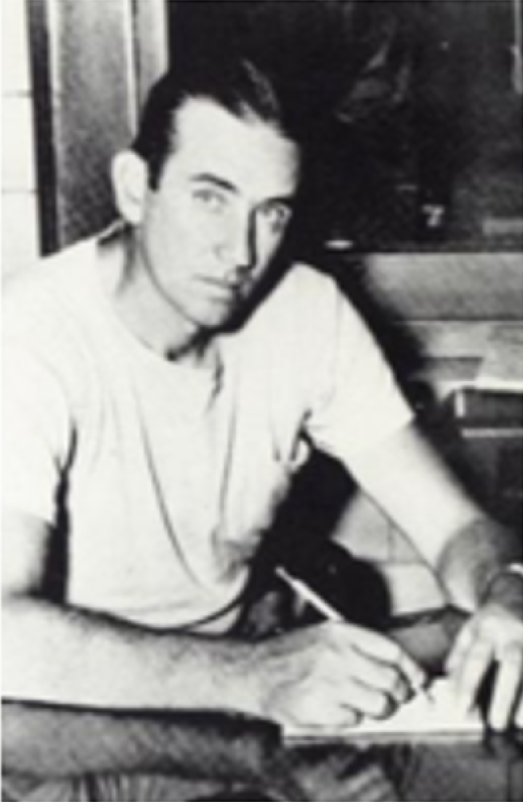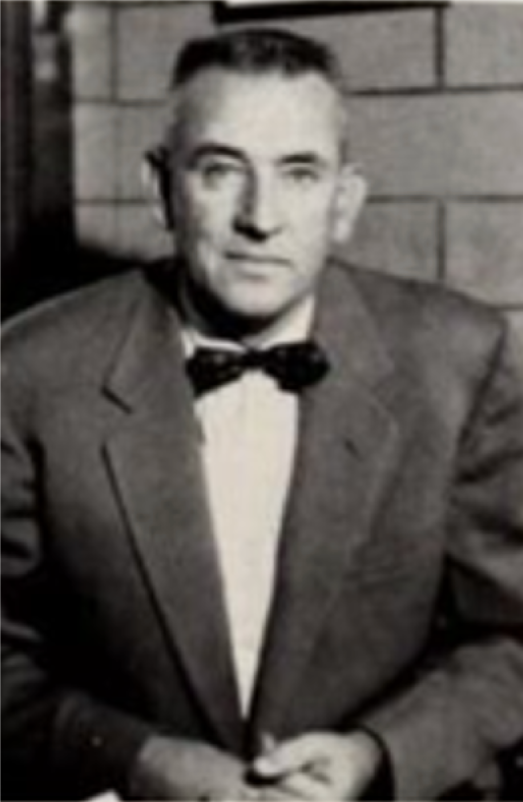|
Born in Fairview, West Virginia in 1913, Wilford “Squibb” Wilson’s athletic career at Fairmont State spanned a total of five decades. As a student, he was a three-sport athlete and excelled in football, basketball, and baseball. He was a member of the All-Conference Football Team in 1934 and, following his service in the Navy during World War II, he earned a master’s degree in physical education from Columbia University. Squibb returned to the falcon community in 1939 as an assistant coach to Jasper Colebank, and just one year later was named head coach of the same three sports in which he starred. As coach, he led the Falcon basketball team to their first conference tournament victory in 1949, and by 1952 he was appointed to the role of Athletic Director.
In 1967, with Squibb Wilson as Athletic Director and Harold ‘Deacon’ Duvall as head coach, the Falcons boasted an 11-0 record and went on to win the NAIA National Championship over Eastern Washington. In celebration of their title win, Squibb negotiated a trip to Super Bowl II in Miami and sent the entire team to the game – managers and cheerleaders included. Known for his optimism and his deep love of Fairmont State, Squibb purchased a home on Locust Avenue which he nicknamed “The Falcon’s Nest” and would rent it out to athletes. He cared about the students and wanted only the best for them, both on and off the field. “Dad would walk around with $10- and $20-dollar bills in his shirt pocket and pass them out to students who might need a dollar or two for whatever reason,” said his daughter, Mykie Reagan. “He wanted nothing in return, and hardly anyone knew he was so generous.” Throughout his impressive career, Squibb guided the Falcons to 12 West Virginia Conference championships, including 10 WVIAC baseball titles and 2 WVIAC basketball titles. He was named “Baseball Coach of the Year” in the Eastern United States in 1967 and was posthumously inducted in the West Virginia Sportswriters Hall of Fame in 1987. In a Times West Virginian article dated July 27, 2014, former WVU Coach Bill Stewart credited several Fairmont State coaches – Squibb Wilson chief among them – for helping to shape his life. “Those are the guys who gave me my foundation,” Stewart said. “I don’t know where in God’s name I’d have been without those fine men at that school.” In addition to his athletic career, Squibb was also a tireless civic leader. He originated the Little League baseball program in Fairmont and was responsible for establishing the first 44 leagues in the state, as well as the first Pony League program in West Virginia. Squibb served five terms in the West Virginia House of Delegates and was twice named as a delegate to the Democratic National Convention. “Dad bought a trailer in 1959 so that our family could travel all over West Virginia campaigning for the 1960 US Senate seat, running against the incumbent Senator Jennings Randolph,” Mykie said, reminiscing about her father’s time in politics. “He thought he could win an election with very little money if people got to know him. So, we would climb out of the trailer, Dad would shake hands, and Jude and I would pass out election cards, on every street corner in the state.” Following his election as Marion County Magistrate in 1976, Squibb retired from Fairmont State. His legacy was commemorated in the 1977 issue of The Mound, which paid tribute to the beloved coach and mentor. “The Wilson era will long be remembered as one of the finest in the college’s athletic history,” it read. “And Squibb himself will not easily be forgotten.” The Wilford “Squibb” Wilson Memorial Athletic Scholarship stands in his honor today. |



